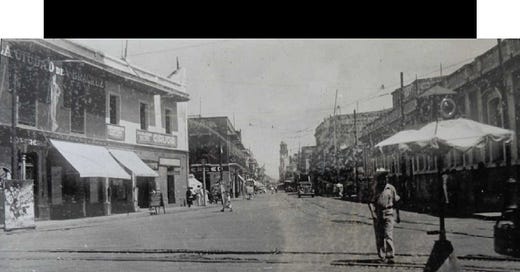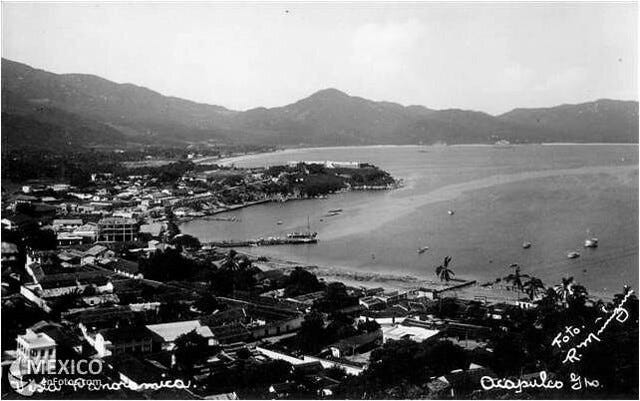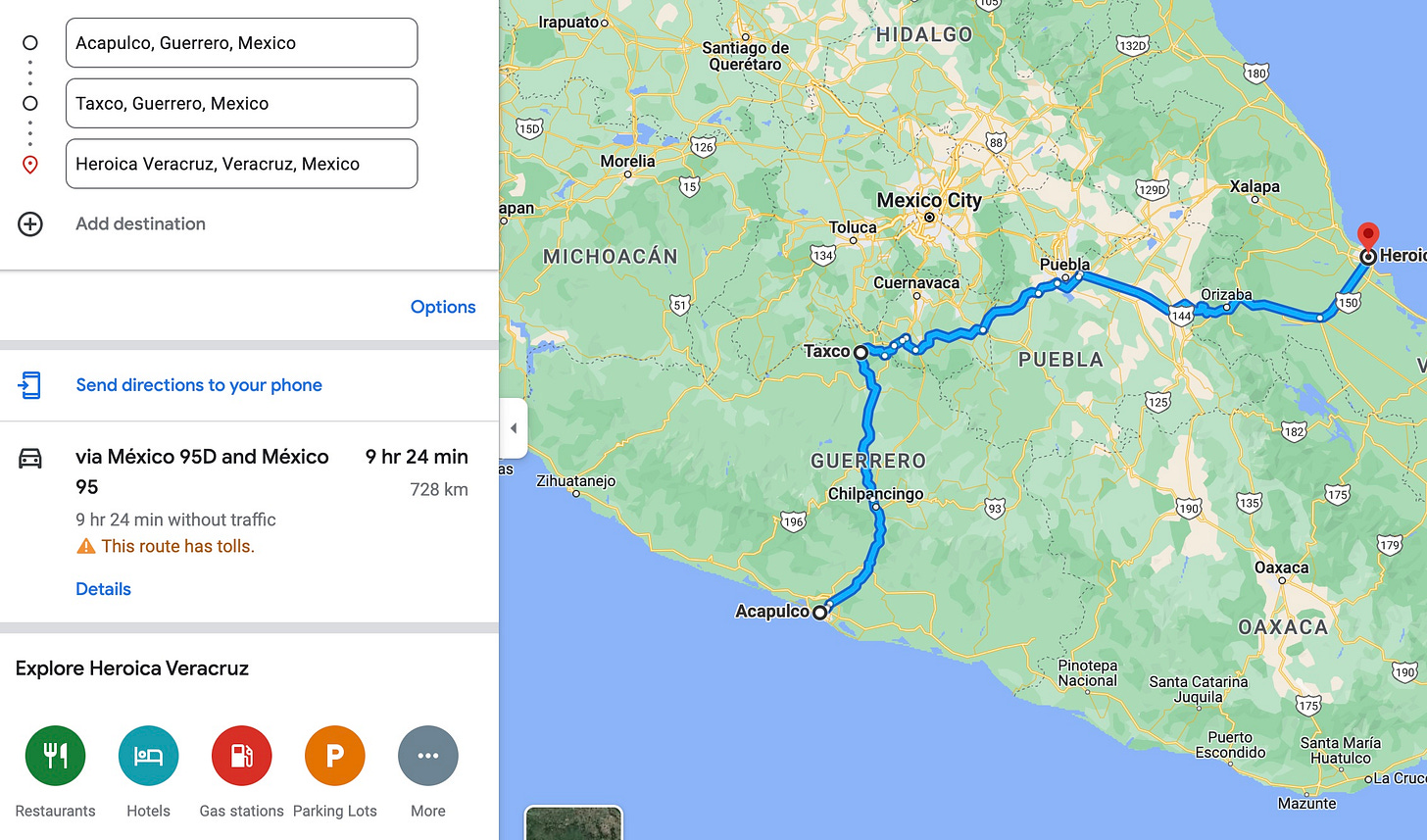When Opapa disembarked from the S. S. Flandre in June 1939, he was on a six-month tourist visa to Mexico. He had no money and spoke minimal Spanish.
Fortunately, he did have a place to go. Opapa’s half-brother Laci, who was living in California, had spent time in Mexico earlier in the year (another long story). He gave Opapa the name of a boarding house where he should stay. It was a boarding house filled mostly with “American tourists -- particularly, for some reason, American schoolteachers” who “came in their cars.”
I don’t know the name of the boarding house, but I did find the following description of Opapa’s arrival in his eulogy for Laci, which he wrote in 1992:
[Laci] paved the way for me to go to a boarding house where he had stayed. When I entered, a young woman greeted me and said I must be George. She said I didn't look like Laci - he was a fantastically attractive man - but there was something that reminded her of him, maybe that hungry Budapest look.
What a relief it must have been, after arriving in a foreign country after a stressful journey, to be greeted by someone at the boarding house. It was not home, but at least Laci had created some connections for him.
Still, life was not easy. In his autobiography draft, Opapa wrote that his “stay in Mexico was interesting but difficult, because again, I had no money.” For the first couple weeks, Opapa subsisted “on bananas alone.” Then, desperate for money — both to survive and, eventually, to pay for a ticket to get to the United States — Opapa “became a [tour] guide, even though [he] spoke very little Spanish.”
I remember Opapa’s stories about being a tour guide in Mexico. He used to smile wryly, and say that since the American tourists “knew [he] didn't speak good English, they assumed that [he] spoke good Spanish, which [he] did not.”
Here is how he described it in his autobiography draft:
“I offered my services to be their guide and to take them to places that were “off the beaten path.” That was easy because I didn't know what the beaten path was. So we drove in their cars into the Zocalo, the main square of the town or village, and I said, “Now we'll stop right here while I go out and make arrangements.” I knew enough Spanish to go to a small local hotel and find out what lodging would cost. Then I would go back to the car and say that everything was arranged. This way I got around Mexico, including Acapulco at a time when Acapulco had only one more or less modern hotel (with iguanas climbing the walls), and no paved road beyond Taxco. I had a wonderful time.
I love Opapa’s line about how he offered to take tourists “off the beaten path,” since he “didn’t know what the beaten path was.” We also get a sense of Opapa’s strategy from this passage: he drove to the main square of a town, the zócalo, and then found a small hotel and booked some rooms while his guests enjoyed themselves in the square. Pretty smart! It sounds like it worked well.
The idea to become a tour guide also gave Opapa the opportunity to travel all around Mexico. I did a little mapping of the places that he mentioned in the passage above, and he covered quite a long distance — even today (on paved roads), it would take nearly 10 hours to drive from Veracruz to Taxco to Acapulco (one way).
In 1939, as Opapa mentioned, the road from Taxco to Acapulco was still unpaved, so it probably took a full day just for that leg of the trip.
I always found Opapa’s stories about Mexico to be riveting. Also, I was impressed by Opapa’s gall: how he dared to take American tourists around Mexico when he had never been there himself, and he didn’t really know the language! When I think about it now, though, I think it speaks both to Opapa’s courage and to the desperate nature of his situation, being completely broke and knowing he needed to find money to get a ticket for the U.S.
And yet, in true Opapa fashion, he managed to find some excitement, adventure, and fun in a harrowing and nerve-wracking moment. “I had a wonderful time,” he concluded, when he looked back on the experience many decades later.
***
Nuts to crack:
When did Opapa start learning Spanish? He mentioned that he already knew some basic Spanish when he boarded the S.S. Flandre, and that he could have a “halting” conversation with the Spanish Loyalist General. Had he taken lessons in Hungary? Or was he just teaching himself, since he knew he was planning to stay in Mexico?
Does anyone remember any other details from Opapa’s stories about Mexico?
Did he travel with just one group of American tourists or were there multiple groups? Given how far he traveled, it seems like he stayed with one group for an extended period of time, but it’s hard to know.







Did he learn Spanish eventually? Was it one of the languages he spoke according to his OSS profile?
I only know the stories you told . . . maybe Tommy knows some?